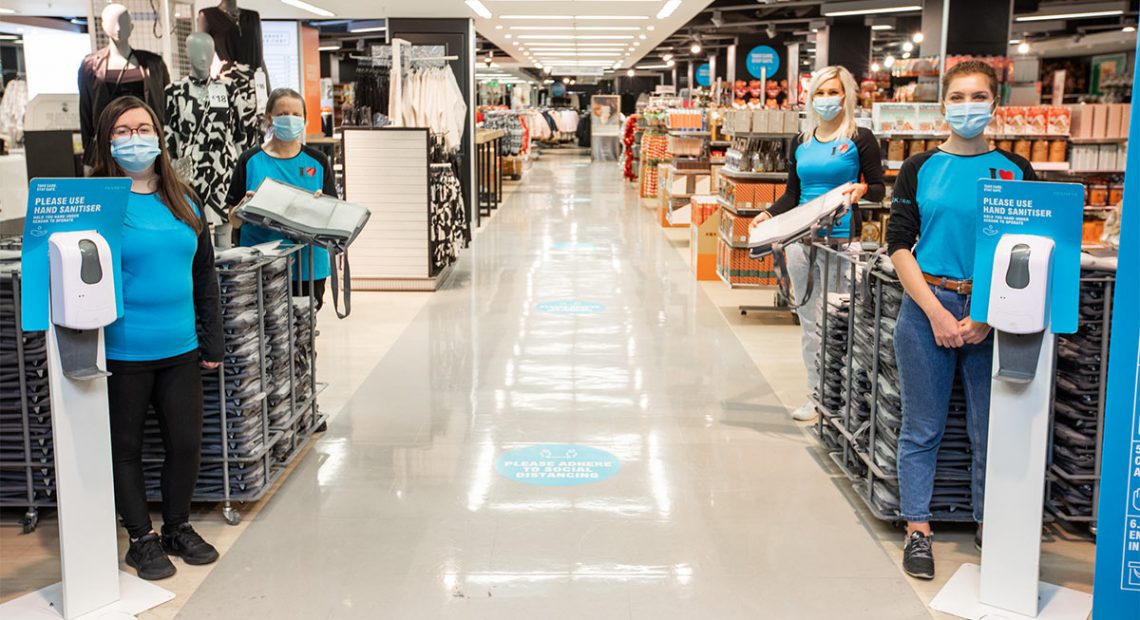MICHAEL WOLSEY: Shops, like puppies, aren’t just for Christmas – use them or lose them

The full re-opening of shops this week caused a wave of excitement in many homes. Some people got up at dawn to be first in the queue.
And they weren’t queuing for exotic items in luxury stores. Penneys seemed to be the favourite port of call and a lot of the shoppers were buying everyday items that were not urgently required.
A woman told a radio interviewer she had been too excited to sleep and so was up from 4am. She was heading a Penneys’ queue to buy pyjamas for her children and slippers for herself.
All this would seem to be good news for Ireland’s retailers, the ones that operate out of bricks and mortar shops that is. The future looks secure for our downtown stores, those in what Britain calls the high street.
But looks can be deceptive.
Every December for the past four years I have written about how our shops are faring and each year I have told the same tale of online growth and high street decline with big names falling by the way. Toys R Us, Maplin, Poundworld and Mothercare have all closed their doors. This year they were joined by Debenhams. Pamela Scott has shut half its Irish shops and now Arcadia – the company that controls Topshop, Dorothy Perkins and Burton – is on the brink of closure.
For the first time in Ireland, spending online has overtaken physical spending. In November 51% of consumer spending was transacted over the internet, according to the money provider Revolut, which has a million customers here.
Since most shops were closed in November that is hardly surprising, but the figures for October were not very different and Revolut reports that, despite all the excitement about re-opening, December’s figures continue to favour online shopping.
So are we a nation divided between the enthusiasts who get up at four in the morning to join the queue for Penneys and the 51 % who think a shopping trip means moving from the couch to the kitchen where the laptop is?
In truth, I suspect there is a huge crossover. Most of us like the idea of real shops and some of us like the idea of real shopping. But most of us also have days when we just can’t be bothered and lockdowns made those days come around more often.
We don’t really need Revolut to confirm the trend or headlines about big name closures to remind us of the consequences. Just take a walk through any provincial town and you will see empty shops, even in the main streets.
Some did not join in the big reopening and some will never open again.
It is the same story in out-of-town shopping centres. Even before the Covid crisis there was a rash of vacant premises and space once occupied by high-end retailers was being filled by charity shops and seasonal pop-ups. Now even some of those have closed.
And it is not just our stores that are vanishing. A lot of office work had already moved away from town centres and the increase in working from home has added to the flow.
The work of travel agents, insurance brokers, record shops and even bookmakers, is being conducted online and they no longer need downtown premises.
Our town centres are being given over increasingly to small service industries such as hairdressers, nail bars and coffee shops.
Their future is far from secure. They rely for their existence on office staff and the passing trade of shoppers. Take away the offices and the shoppers and our town centres will die. We will end up with soulless town centres ringed by half-empty shopping malls.
I am sure this is not what we want: the early morning queues are proof of that. But it will take more than post-lockdown enthusiasm to save our shops.
Like puppies, shops aren’t just for Christmas. If we don’t want to lose them we’ve got to use them – all the year round.




